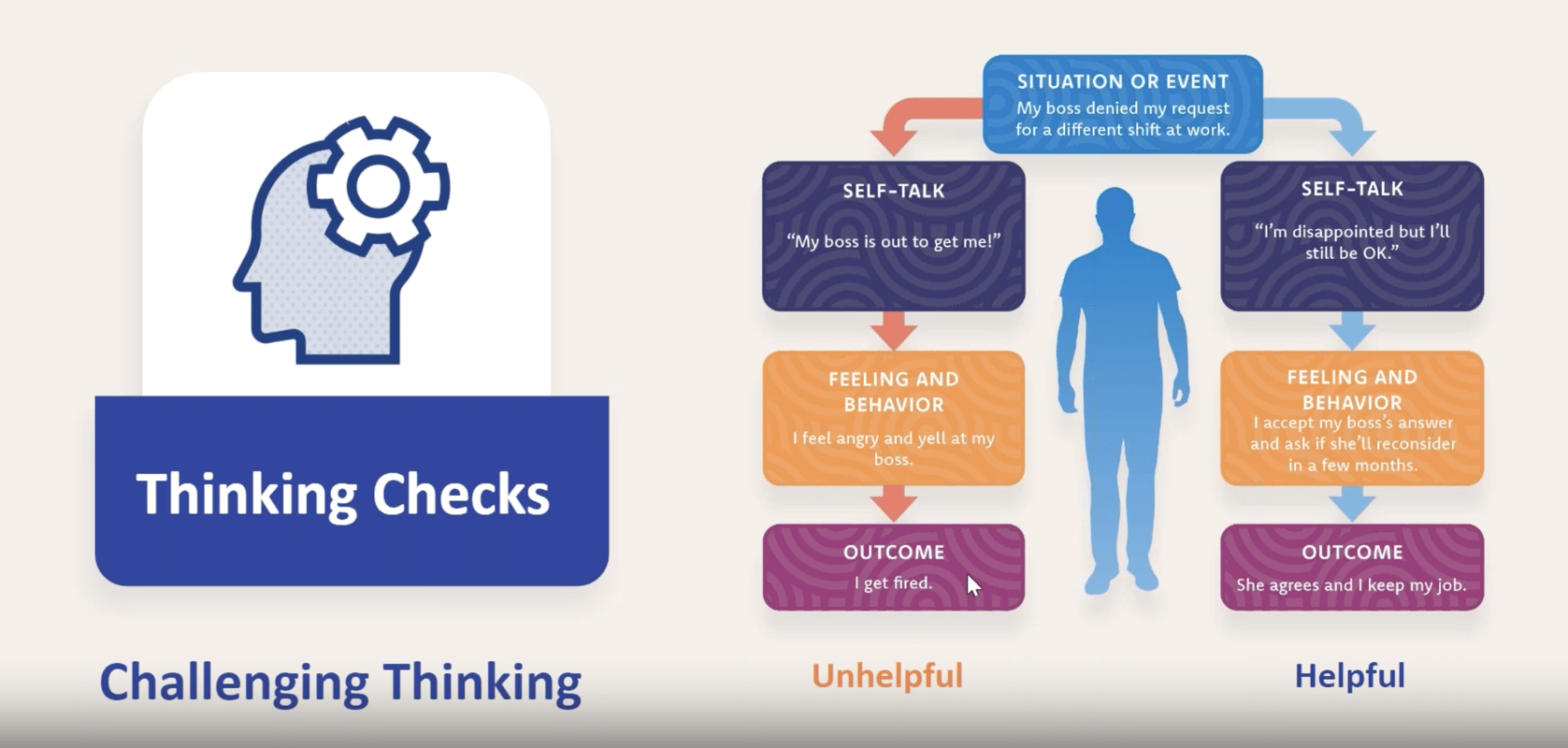
Common risky thinking patterns
-
Making excuses
Clients excuse or justify their irresponsible behavior and place the responsibility or blame for their actions on the situations in their lives or on other people.
-
Ignoring responsible action
Clients eliminate any sensitivity to the consequences of their behavior and find ways to get rid of their worries or fears.
-
Asserting power over others
The focus is on gaining power and control over others. Clients may resort to intimidation or threats to get what they want, and are quick to label people as weak or strong.
-
Self-serving acts of kindness
Clients excuse the harm they have caused others by saying or doing things in an effort to feel better about themselves or make themselves look good.
-
Getting away with anything
Clients believe they are too skilled or smart to get caught for irresponsible behavior. They are extremely optimistic and overconfident and fail to consider the potential negative consequences of their actions.
-
Lazy thinking
Clients take the path of least resistance and look for shortcuts instead of working toward specific and realistic goals.
-
A sense of being above the law
These clients see the world around them as existing for their personal benefit. They believe they have the right to disregard laws. They may mislabel their “wants” as “needs” and act like an exception to the rule.
-
Getting sidetracked
Clients are easily distracted and show a lack of persistence. They may have a difficult time following through with their goals and commitments.
There are many ways for facilitators to identify risky thinking patterns, including self- or professionally-administered assessments, scales and questionnaires.
Pro Tip: Find an instrument that fits your population, and ensure staff are properly trained on administration, scoring and interpretation.
Addressing risky thinking patterns
Once you have identified areas of difficulty for your client, the first step to address these patterns is with the cognitive-behavioral therapy (CBT) model: situations → thoughts (self-talk) → feelings and behaviors.
Once the importance of thoughts is made clear, the work can begin on changing self-talk to positively impact feelings and behaviors.
-
Thinking check exercises allow clients to analyze their self-talk and consider any positive changes they would like to make to achieve better outcomes. There is also an opportunity here for clients to rate how true they believe a thought to be on a scale of 1-10, helping them to track their progress and celebrate changes.
-
The evidence-based expressive writing component of Interactive Journaling® is effective for challenging risky thinking patterns. Interactive Journaling® helps clients gain insights into patterns in their thoughts and feelings, identify negative triggers and develop strategies for managing their self-talk.
-
Meditation and mindfulness are also effective for tuning in to thoughts and feelings from an objective, non-judgmental perspective.

For a more in-depth look on risky thinking patterns and examples of each, check out our two-part webinar series with senior training consultant (and former Arizona DOC division director of inmate programs and reentry) Karen Hellman available for a limited time on our webinars page.
At The Change Companies, we’re here to help. We offer a full range of evidence-based products, including Interactive Journals, Facilitator Guides, trainings and digital curricula, all specifically designed to alleviate your workload as a provider as much as possible. We're in this together, walking with you alongside your clients on their journey to a better tomorrow.



